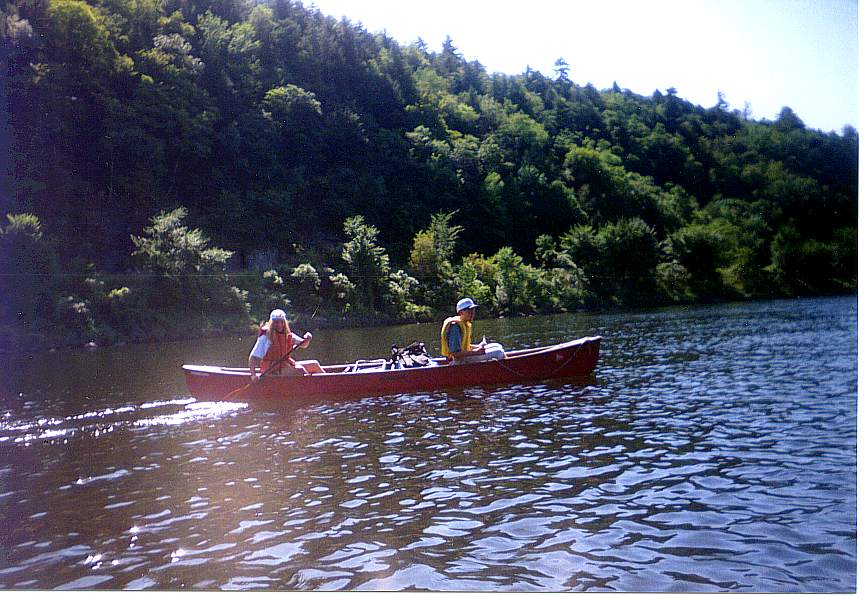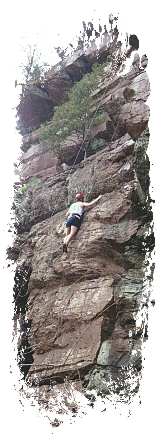OA-X
OA-X is the next level of training for OA Leaders. These courses are designed to prepare you to lead at the neXt level. Whether it's a Frosh Climbing Trip, Whitewater Canoeing, advanced backpacking skills, Leave No Trace Trainer, Advanced Facilitator or CPR Instructor. Sign up at the OA TripStore
Upcoming Activities
SAVE A LIFE! CPR Instructor Course
This Red Cross Course will qualify you to teach CPR and First Aid. Individuals who successfully complete the training can be hired by OA to teach classes on campus at a starting rate of $9.30/hour. TIME: Twenty-five hours include FIT (Fundamentals of Instructor Training and AED (automated External Defibrillation training) (breaks and lunch not included) (23 hours without AED training) Dates: To be arranged
NOTE: This program does not include the basic certification course. Students requiring a basic knowledge course including training in Adult CPR, Child CPR, Infant CPR, AED and First Aid should either attend a separate class. Please note the additional the price represents a student discount. Regular cost of the program is $180 per person for the instructor course and $35 additional for AED basic certification. OUTDOOR ACTION COVERS ALL COSTS AND PAYS YOU FOR THE HOURS OF TAKING THE COURSE PROVIDED YOU TEACH AT LEAST 4 CPR COURSES FOR OA You will be reimbursed for taking the instructor's class at $8.50/hour provided that you teach for OA.
For Leaders who want to apply to lead Climbing or Canoeing Frosh Trips you are required to complete one of the following courses. Both are Free! Normally these courses would cost you hundreds of dollars. You will need to return to campus on Sunday, August 22.
Zoar Outdoor Whitewater Canoeing Course - Mon. 8/23 - Wed. 8/25
 This special 3-day whitewater canoeing training course is taught by experienced ACA instructors from Zoar Outdoor in Massachusetts. You don't need any prior training to participate. At the end of the course you will be qualified to paddle Class II rapids and be eligible to lead Frosh Trip and other OA Canoeing trips. Three full days of whitewater should be a great way to end your summer! Cost Free!
This special 3-day whitewater canoeing training course is taught by experienced ACA instructors from Zoar Outdoor in Massachusetts. You don't need any prior training to participate. At the end of the course you will be qualified to paddle Class II rapids and be eligible to lead Frosh Trip and other OA Canoeing trips. Three full days of whitewater should be a great way to end your summer! Cost Free!
 Top
Rope Climbing Course with EarthTreks - Mon. 8/23 - Wed. 8/25
Top
Rope Climbing Course with EarthTreks - Mon. 8/23 - Wed. 8/25
For anyone interested in becoming and OA Rock Climbing Leader you should take this 3-day Course with EarthTreks. The course is based on the State of Maryland Climbing Instructor's Certification Training. The primary focus will be to share the common peer practices of this field with the participants. Topics will include top rope anchors, rappel anchors and managing rappel stations, proper use of equipment, basic rescue techniques, and teaching techniques and rock site management. Our goal is to prepare climbers for work with institutional top rope climbing programs. An emphasis will be placed on the common peer practices widely recognized in the field. People successfully completing the course will not only have recived excellent training but also have the possibility of teaching climbing for OA or with other programs. Two days will be spent with instruction at Ralph Stover State Park in PA and the last day will be spent at Millbrook Rocks in the Water Gap where Frosh Trip groups climb. Cost Free! Here is the syllabus.
DAY 1
Introduction
- Group Introductions
- Goals Setting and Expectations
- Our goal is to prepare climbers for work with institutional top rope climbing programs. An emphasis will be placed on the common peer practices widely recognized in the field.
- Safety Briefing
What’s an Industry Standard or Best Practice and why are they important to us?
- Group discussion on the definition of Best Practices, where industry standards
come from, how they evolve, and implications for non-compliance.
Top Rope Anchor Construction:
- How strong does an anchor need to be? Discuss the creation of force in a climbing environment and how it affects the way we build anchors.
- Discuss fundamental principals of top rope anchors- Redundancy and Equalization.
- Discuss applications and specifications of widely used gear.
- Discuss and practice applicable knots and hitches used in anchor building.
- Demonstrate methods for setting up redundant equalized systems efficiently.
- Practice Anchor building in pairs utilizing peer critiques.
- Climb on final systems set up if time allows.
DAY TWO:
Introduction
- Check in with group, set goals for the day, reiterate safety briefing.
Top Rope Anchoring Review
- Set up top rope systems in pairs again to review skill learned the day prior.
- Introduce skills and considerations in using a top rope system as a top belay. Have teams set up a top belay, lower a climber, and belay them to the top.
Managing a Top Rope Site
- Introduce skills and consideration in managing a top rope site (i.e. the belay area at the bottom of the cliff. Have group set up standard top rope anchors for use with a bottom belay.
- Discussion will include belay methods, ground anchors, site management, choosing belayers, etc.
- Discuss basic decision-making skills relative to emergency situations.
- Demonstrate and practice belay escapes.
Introduce Releasable Rappel Systems
- Demonstrate and practice skills in building and facilitating releasable rappel systems.
- Practice methods for using releasable system to deal with emergency situations.
DAY THREE (Local NJ Site):
Introduction:
- Have the group guide the introduction just as they would if they were bringing their own group that day.
- Introductions, Goal Setting, Safety Briefing, Site Specific information, etc.
Top Rope Anchor Review:
- Have pairs set up top rope systems on climbs that the group will be using in future programs.
- Evaluate and discuss any site specific safety considerations in regards to anchoring, the climbing area, and the climbing itself.
- Have the group climb to familiarize themselves with the climbs they will have to guide their students on. Brief movement review if necessary and appropriate.
Releasable Rappel System Review:
- Have pairs build releasable rappel systems on rappels that the group will be using in the future.
- Evaluate and discuss any site-specific safety considerations.
- Have pairs take turn as student and instructor in facilitating a rappel with a belay. Deal with various emergency situations.
